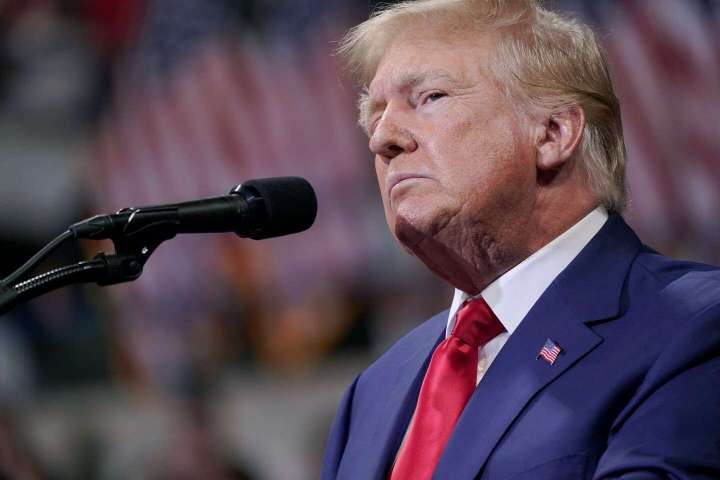Donald Trump’s lawyers’ conspicuous reluctance to echo Trump’s claim that he had declassified the records that were labeled confidential, secret or top-secret seized at Mar-a-Lago last month just became even more conspicuous.
Trump’s lawyers still won’t actually say it

The dispute over which records a special master will review has provided an ideal forum in which to assert the claim. Judge Aileen M. Cannon recently ruled that the special master must be allowed to review all of the nearly 11,000 documents seized, including 100 that are classified, temporarily hamstringing the DOJ’s criminal investigation. That led the Justice Department late last week to ask narrowly that the government be allowed to continue reviewing only the classified documents.
In a filing in response to that DOJ request on Monday, Trump’s lawyers suggestively cast doubt on whether the documents are actually classified. They repeatedly use skeptical quotation marks around the phrase “classified records.”
But crucially, they yet again decline to say Trump actually declassified them, and instead cast that as an issue “to be determined later.” Rather than actually assert Trump declassified the documents — as Trump has said, in his various public statements — they attempt to place the burden on the Justice Department to prove that Trump didn’t.
“The Government contends that President Trump can have no such interest in the purported ‘classified records,’ ” Trump’s lawyers say in their filing. “But, again, the Government has not proven these records remain classified. That issue is to be determined later.”
And at another point, the filing says that “the Government’s stance assumes that if a document has a classification marking, it remains classified irrespective of any actions taken during President Trump’s term in office.”
“There still remains a disagreement as to the classification status of the documents,” the filing says. “The Government’s position therefore assumes a fact not yet established.”
But there isn’t really a disagreement, at least in the legal record. The government says the records are classified because they are marked as such and there is no actual evidence they were declassified; Trump’s legal team is casting doubt on that without actually saying it’s not true. And they won’t say it despite having direct access to the guy who could seemingly clear all that up.
Trump’s lawyers have said repeatedly in court filings that Trump had the power as president to declassify the documents — and they said that as far back as in May, in a letter. But, as in that letter, the lawyers won’t go as far as to say he actually did so. They won’t say it even though former Trump aide Kash Patel, in response to a report about classified documents being housed at Mar-a-Lago, said on Breitbart News in May that Trump “declassified whole sets of materials in anticipation of leaving government.” They won’t say it even though Trump issued a statement as early as Aug. 12 that “It was all declassified.” (Back then, Trump’s team also claimed on Fox News, without evidence, that he had a “standing order” that “documents removed from the Oval Office and taken to the residence were deemed to be declassified the moment he removed them.”)
The dancing around this issue has even, at times, extended to public comments made out of court. Trump lawyer Alina Habba recently qualified the claim that Trump has declassified the records by saying it was “my understanding” that he had done so. (Habba said this shortly after suggesting she hadn’t had sufficient security clearance to such documents — something which would only be an issue if the documents were, in fact, classified.)
That interview seemed to reinforce what’s clear from the rest of the record: For whatever reason, Trump’s lawyers simply don’t want to say in court what Trump has said outside of it. That could be because they know it’s not true, because they worry they can’t actually prove it, or because they simply don’t know themselves and worry about repercussions from making a false claim to a judge.
But this filing seems like it would have been an ideal time to assert such a thing, and they still won’t. The documents actually being declassified would significantly strengthen their case against the Justice Department’s proposed stay; instead, they keep pointing to the idea that it’s merely possible that’s the case without actually saying it is. And they suggest it’s on the government to prove a negative.
Again, strictly speaking, the documents’ classification status might not be fully relevant when it comes to the potential crimes the government is investigating. The government’s subpoena was also for documents marked classified — not just actual classified documents.
But it does matter for the issue at hand. It certainly matters when it comes to the credibility of Trump’s defense. And it appears Trump’s lawyers are going to continue to do all they can to avoid echoing their boss.






